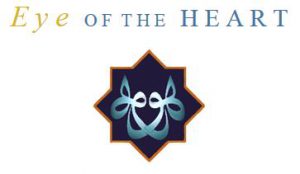
THRESHOLD SOCIETY NEWSLETTER ~ MAR 2020
***

***
Witness to Your Love
~ Camille Helminski, with love
We are all witness to Your Love,
in every breath,
in every ripple of our flesh
as we walk about Your paths
among the palms
and dance in Your salty sea.
Your air breathes us, around us,
Your bougainvilla bursts into magenta bloom.
Your trees rain coconuts and purple cainitas;
oranges, coriander, and pineapple,
blended, refresh our nerve
to turn in ecstatic surrender
to hear from every direction Your Word.
Voices and hearts share Your communication
among all these friends from different nations.
O You who understand all tongues, help us to see
that we are all already knit together, for all Eternity—
Your shawl, Your grass,
Your prayer, Your ocean,
Your hermit crabs, Your shifting sands,
Your sand-dollars and pelicans,
Your hummingbirds, Your raccoons,
Your ants, Your iguanas,
Your stars, Your moon, Your sun . . .
even if we disappear
below the watery horizon,
Your remembrance holds us in You,
for You are all that is,
All that ever was or would be,
the First, the Last,
the Living, the Loving,
Ya Wadud!Subhanallah, Ya Rabbal Alameen,
Ya Allah HUUUUUUUUUUU!!
***
March Theme
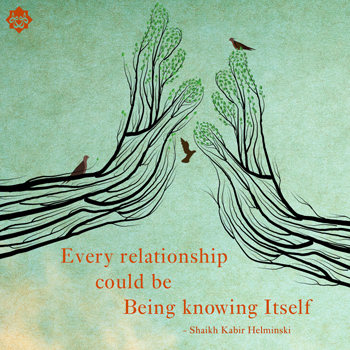
Every relationship could be Being knowing Itself.
~ Shaikh Kabir Helminski
We welcome your reflections on this theme.
***
Reflection on February’s theme: Every relationship could be Being knowing Itself. ~ Shaikh Kabir Helminski
~ Jeremy Henzell-Thomas [Glastonbury, UK]
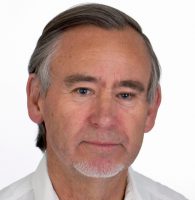 When I received the Threshold Society Newsletter for February inviting reflections on the theme for the month there seemed to be a striking synchronicity in the fact that open on my desk was What The Seeker Needs, a book of essays by Ibn ‘Arabi published by Threshold Books in 1992. In front of me was the essay ‘The One Alone’, a commentary by the Shaykh on the saying of the Prophet Muhammad, ‘He who knows himself, knows his Lord.’
When I received the Threshold Society Newsletter for February inviting reflections on the theme for the month there seemed to be a striking synchronicity in the fact that open on my desk was What The Seeker Needs, a book of essays by Ibn ‘Arabi published by Threshold Books in 1992. In front of me was the essay ‘The One Alone’, a commentary by the Shaykh on the saying of the Prophet Muhammad, ‘He who knows himself, knows his Lord.’
When we hear the admonition to know oneself we may immediately think of this famous hadith, or perhaps the Ancient Greek aphorism ‘Know Thyself’ (gnothi seauton) which was inscribed in the forecourt of the Temple of Apollo and was a guiding maxim of Plato’s Academy. But this wisdom is not only found in Greek philosophy and Islamic tradition; there are numerous versions of it by early Christian writers, one of which is this saying of Clement of Alexandria (d. 217 CE):
The most beautiful learning and the greatest is
to know yourself, for whoever knows himself knows God
and whoever knows God becomes like Him.
St. Ambrose,one of the most influential ecclesiastical figures of the 4th century, taught that ‘To know oneself is to recognise the divine image and likeness in oneself’ and ‘By advancing in self-knowledge ascend to knowledge of God.’
The recognition by Ambrose of the ‘divine image’ within oneself may also remind us that the Prophet Muhammad referred to the human being as being created in the image of God: ‘Verily, God created Adam in His image’. Such allusions affirm that the human being is a manifestation of the Attributes of God, a reflection of the Divine Names. If we were not qualified by these attributes, says Al-Ghazali, we could not know God, and this is why the Prophet said, ‘Whoever knows himself knows his Lord.’
Ibn ‘Arabi is insistent in distinguishing between ‘knowing’ and ‘annihilating’ the self. He advises, ‘Do not think anymore that you need to become nothing, that you need to annihilate yourself in Him.’ That is why it was ‘permissible’ for Mansur al-Hallaj to utter ‘I am the Truth’ and for Abu Yazid al-Bistami to cry ‘Praise be to Me, the essence, absolved of all defect’ for they were both united with Truth. ‘You are yourself the cloud veiling your own sun! So recognize the essential reality of your being!’ The Qur’an tells us that as verification of the Truth we will be shown the signs of God not only ‘in the furthest horizons of the universe’ but also ‘within our own selves’. Self-knowledge is not a state of remote transcendence but a state in which we are deeply aware of the immanence of the Divine Presence in everything.
The advice of the Prophet to ‘die before you die’, so central to the path of Sufism, is not to enter into a void, but to realise, as Ibn ‘Arabi explains, that in coming to know yourself, ‘your selfishness will leave you, and you will know that there is nothing in existence but Allah.’
Striving to overcome the lower self (the greater jihad) need not detain us perpetually in a state of grinding self-examination, self-flagellation and self-abnegation. In Sufism, the nafsi lawwama, the self-blaming or reproachful self is a necessary stage in struggling with the lowest level, the nafsi ammara, the commanding, compulsive self or ego, but our goal is to find the treasure, to mine the gold, not be locked in abject self-reproach in a permanent siding on the track. The train goes on to higher stations, that of the Inspired Self, and then the Secure Self, the Contented Self, the Gratified Self, and ultimately the Complete Self.
Let me distil the essence of what I am trying to convey by returning to a dream that my wife Tania had in 2016 and which I told at the Threshold Society retreat that year on the theme of Personal Sovereignty and Divine Sovereignty at Gaunts House. In the dream, she was measuring the width of a large, oval mirror with a wide, white, carved frame. She was using the small ruler which we keep in a drawer in the kitchen. She started at the outer left hand edge of the frame and measured towards the centre of the mirror. The measurement was five inches and the ruler did not quite reach to the centre of the mirror. She did not see her own reflection in the mirror.
I was so moved by this dream that I wrote her this letter:
In the mirror we see reflected our true Self. Your mirror is a large one because of the extent and expansiveness of your Self. Its frame is substantial to symbolize that it is no ordinary mirror, but a distinguished and valuable one, a mirror marking a room of distinction. Its spiritual purity is also indicated by the whiteness of the frame.
You cannot measure the extent of your Self with a 5-inch ruler. In that, you underestimate yourself. So here is a better ruler [I included it with the letter] both longer and wider, one used by pilots and navigators to measure nautical miles on a scale of 1/500,000. It must have been your father’s [Tania’s father had been a flying ace]. Its full extent encompasses 140 miles. From the frame of your mirror it will extend at least to its centre, and reveal the heart of who you are in all its fullness. It extends far into the ocean. It is a legacy from the Father who gave us all a yardstick within ourselves as human beings, ‘the measure of all things’.
I count myself blessed that I spend my days and nights in the precious company of you, my beloved, who continually reflects to me the immeasurable attributes of the Divine Beloved. Treasure your Divine Parent’s ruler, and it will reveal to you the Face of your Whole Self.
~ Jeremy Henzell-Thomas is an independent researcher, writer, speaker, educational consultant, and Visiting Fellow at the Centre of Islamic Studies at the University of Cambridge.
***
Write Your Own Book
Reflections from Costa Rica
~ Amira Abd El-Khalek
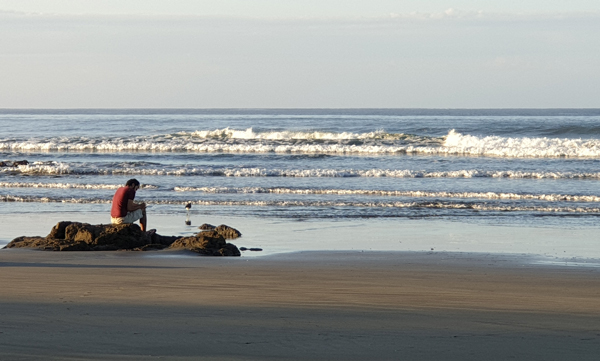
‘Write your own book,’ Kabir Dede said, describing poetry and creativity. This was my second creativity retreat in Costa Rica with Kabir and Camille Helminski. The retreats have been enriching, surroundings breathtaking, and friends’ hearts wide open. As our teachers described it, the environment was pristine. We were encouraged to awaken our attention, explore our spiritual imagination, and we were using words and images to express the power and beauty of Divine Reality. It was beautiful.
And yet, I was unable to write. I loved poetry, I was blessed to be with my teachers, and my soul was being nourished with good food and the company of friends whose reflections, questions and sharings were inspiring. I had brought my colours, notebooks and poetry books. I was ready to unleash my creativity and conquer a persistent writer’s block. I was trying too hard.
One evening, as a group of us were completing a round of zhikr, Dede joined us. He gave us some writing tips. Words that resonated: ‘Remember, Recollect and Record instances,’ Dede said, ‘even if they seem detached.’ When he told me, ‘I would like to hear you talk of your experience,’ something clicked. It was as if he had transported me from the present moment and challenged me to look beyond my enclosed self. He asked me to look at my own experience. That of the work that I do and the countries I have lived in through my humanitarian work.
In trying so desperately to ‘be creative’, I had forgotten who I really am. I live and work in a different reality, one that I love deeply and in which I feel at home. My reality is not the replenishing coconut water, or the melodic chirping of birds in the early morning. It is not following the trails of the iguanas lazily roaming around the resort, nor capturing the beauty of the mountains and the ocean. My reality is not the conflict zone either.
My work involves a close proximity to what is happening on the other side of borders where conflicts are occurring. It is what I listen to every day, what I write about. It is the stories I constantly hear from people I have met who have been through these experiences. In order to write, my reality needed to shift. I needed to step out of the paradise I was in, remember who I am, recollect my experiences and record them on paper as I had witnessed and observed them: A moment, often surreal, in the absurdity of the human condition of war, conflict and displacement. That is my voice. That is my book.
I had been so focused on trying to ‘get it right’, that I couldn’t hear what our teachers were saying all along: ‘Imagination is an attribute of the observer’ and ‘the limitations you set for yourself are limitations that you will eventually come to believe and act upon.’ The poet Rilke writes about the creature that was fed with the possibility of being. I thought I needed to focus on the present, but in reality it was the present that allowed me to focus on my own experience. In his poem Turning, Rilke writes:
Work of the eyes is done,
begin heart-work now
on those images in you, those captive ones;
for you conquered them: but you still don’t know them.
I needed to find those images within me, out of the context I was in. I had borne witness, but I didn’t quite know how to express it. It was only then that I was able to understand the purpose of it all. The creativity retreat gave me the space to explore my own potential and possibility of being – with a nudge or two from my teachers.

Dede had suggested that I simply write down the images that were imprinted in my memory. Here is what I recollected:
Images from my photo album
The sunflower stands tall, enclosed in a high-wired fence. Resilient, dignified. Around it stone-walled shelters replace the tents of displacement.
A blue rocking horse whose owner has not returned, sits lonely in the yard. Its backdrop, the toppled roof of a family home.
Girl standing alone on the clumpy bamboo bridge, a short distance from the makeshift school. Her shawl flowing with the wind. She must be wondering what brought her so far.
Children joyfully stepping over the stones of the river that divides the border. No man’s land. This is where they play in limbo. Neither here nor there; neither in nor out.
The old man walks down the cobbled road on a Friday morning. The Jewish quarter seemingly deserted for many years. The houses too are old and carry the weight of history.
The girl in her bright red dress, watching from the top of rubbled remains. Silent, defiant. Observing the commotion below.
The old church almost completely destroyed. Blue ceiling laden with golden stars. At the centre, Christ in vivid colour pointing upwards. What power compelled them to keep the ceiling intact?
The Tree of Elders, majestically upright, in the largest camp in the world. Despite the forests that were cut, this huge one remains. A sentinel of refuge, both to them and to me.
Moon boats, resting along the beach as the sun makes its quiet descent, filling the sky with orange paint. Just over a year ago, these boats carried humans and their bundles across the river strip.
A baby swing dangling over the entrance of the two-room shelter. Garlic hanging on the wall. Small signs of settling despite the five years of displacement.
A visit to the dentist’s escorted by two armed guards. We transiently pass through the Old City. Oh sweet Land of Yemen, what have they done to you?
The street has an eery sense of silence. Over a hundred and sixty people were taken in one blast there. The memory lingers on, only hushed whispers prevail.
Ali Addeh, bubbles of extra-terrestrial huts covered with rags. Brown and beige with patches of coloured cloth. The people as old and taut as the old acacia trees that have endured the drought and isolation.
Atop the shrine of Nabi Yunus, the Prophet Jonah. You can see Al Nuri mosque in the distance with its tilted minaret. A few months later, there is no Hadba and no more Nabi Yunus.
The water buffalo, Mo’eesh they call it, lazily grazing in the fields. They watch the fancy white vehicles laden with aid stickers pass by. What has become of their peaceful surroundings this past year?
Signposts at the crossroads in Erbil: Mosul, Baghdad, Kirkuk and Sulaymanieh. Am I really here? How did this dream become real?
***
Ya Jami – The Gatherer
~ Matthew Wright

Matthew Wright is a Mevlevi dervish living in West Park, NY. He facilitates the Mid-Hudson Valley circle, which meets weekly on Wednesday nights. The following words were originally shared over the local circle’s mailing list.
Bismillah ar-Rahman ar-Rahim
Dear friends of the Friend,
Salaam aleykum, and much love. I feel moved to share some thoughts with you this morning about practice, and the importance of our daily zhikr (for those of you who may not offer the traditional Mevlevi zhikr, please hear these words in regard to your own current meditation/practice—and if you don’t have a daily practice, consider this an invitation).
For the last several days my morning practice time has been off. I’ve found myself staying up a bit later, and waking up a bit later, than usual—and my will towards morning practice has been weaker in general this winter. I’ve usually attended to ritual prayer in the morning, but some days have not had (notice the passive voice!—I should say, taken) the time for my daily zhikr. This morning I got up on time, and when I sat down for my zhikr, felt that lack of will. I took a few moments of silent zhikr to prepare myself, and then offered the daily zhikr audibly. By the end of practice, my being was coherent, my heart radiant, and my will restored.
This is why we keep practicing! Even if we don’t feel that initial desire, we give this time to God anyway. Kabir Dede once said to me, “Work with the zhikr, devotedly, as if your soul depended on it. It does.” Our practice works with intention and vibration, and it can and will recalibrate us, bring our soul to life, if we only take the time. At the same time, we also see the mercy of God at work in the times our practice falls off and then we are called back again, alhamdulillah. Sometimes God retreats from us temporarily in order to refresh us even more deeply and fully—to remind us of our need and just how great it is.
On Wednesdays, I add Ya Jami 100x to my practice. Al-Jami is The Gatherer. This Name comes from the root j-m-‘ which contains the meanings: to gather, to collect, to unite, to combine, to bring together, to pull into unity. I love being with this Name on Wednesdays, knowing that we will be gathering in the evening. Al-Jami is the One who gathers us together into community, who gathers our community into coherence. Al-Jami is also the One who gathers the fragments of our individual selfhood into coherence and unity. I felt that so clearly this morning—Ya Jami!—bringing me back into unity, resonance, heartfulness, wholeness.
This is why we keep practicing. After practice, I opened the holy Qur’an to these words:
Thou wast not upon the western side when we decreed to Moses the commandment, nor wast thou of those witnessing; but We raised up generations, and long their lives continued. Neither wast thou a dweller among the Midianites, reciting to them Our signs; but We were sending Messengers. Thou wast not upon the side of the Mount when We called; but for a mercy from thy Lord, that thou mayest warn a people to whom no warner came before thee, and that haply they may remember. (28:44-46; Arberry)
Tears came to my eyes. …but We were sending Messengers… but for a mercy from thy Lord… that haply they may remember.
When we come to Qur’an with an open heart, we meet it as a Book of Mercy… reminding us that God is constantly sending Messengers, constantly pouring out Rahmet, constantly calling us back into remembrance. When we come to the Book in our usual state… approach it as only a book (and not a Book) it is often just words — although sometimes even those words are enough to shift our state, alhamdulillah. But it was clear that I encountered Mercy pouring from the page this morning because my heart had just been polished, and so it was able to reflect the Mercy in the Book. When our heart is rusty, the Book may appear harsh, abrasive. Or we may see nothing in it at all.
And this is why we keep practicing. We want to be mirrors reflecting Divine Mercy. We want the Qur’an to bring tears to our eyes. We want our hearts to be open and opening. Ultimately, as Mevlana says, “the Sufi’s book is not ink and letters, it is nothing but a heart white as snow.”
Come to zhikr tonight. Come and polish your heart. Come, drawn by al-Jami, the Gatherer. Come and be gathered as a bouquet of roses.
Ya Jami, Ya Jami, Ya Jami,
Matthew
***
New York Open Center, March 21. 9:30-5:30
The Journey of the Seeker: From Presence, to Heartfulness, to Intimacy
with Shaikh Kabir Helminski
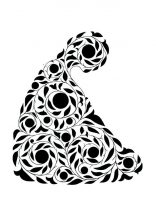
© Lateefa Spiker Art
Early Registration discount ends on February 13.
A day retreat with Shaikh Kabir, exploring the comprehensive nature of presence, a state of self-awareness that encompasses a spectrum of human functions: bodily sensation, breath, emotion, thought, intuition, all the way to the subtlest state of non-dual experience.
***
I consider every Threshold retreat a special privilege, an opportunity to be with a group of extraordinary people. Those who attend these events are people who feel a deep yearning, who show a willingness to do the work of transformation, to take some time from their busy lives to come closer to God. More and more I am realizing that a big part of the effect of these retreats is the quality and sincerity of the people who attend. It is the community that is the crucible for transformation. I feel extraordinarily privileged to be a part of this.
~ Kabir Dede
Annual West Coast Retreat
April 3-5 2020
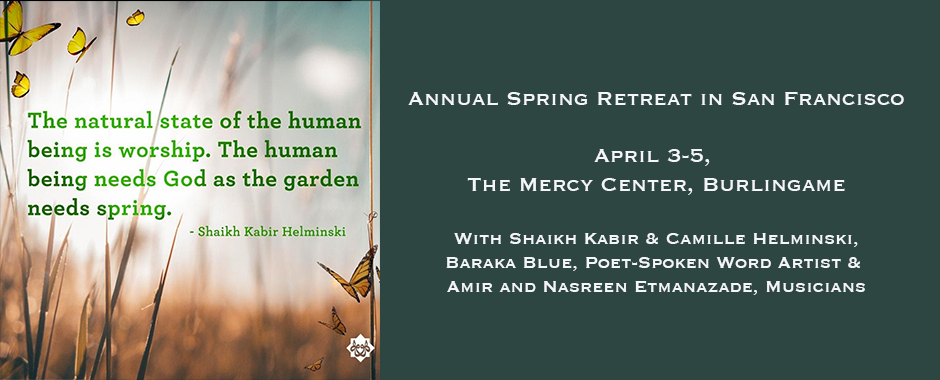
CULTIVATING SPIRITUAL COHERENCE
There may be many paths to Divine Truth, but for the Sufi beauty awakens love, love awakens glorification, and glorification frees us from the prison of the false self.
Join us for this weekend of spiritual practice, music, poetry, conversation, and friendship.
Please register by March 19th. Mercy Center requires that we provide a list of attendees two weeks before the event.
More details and registration.
***
The Threshold Society
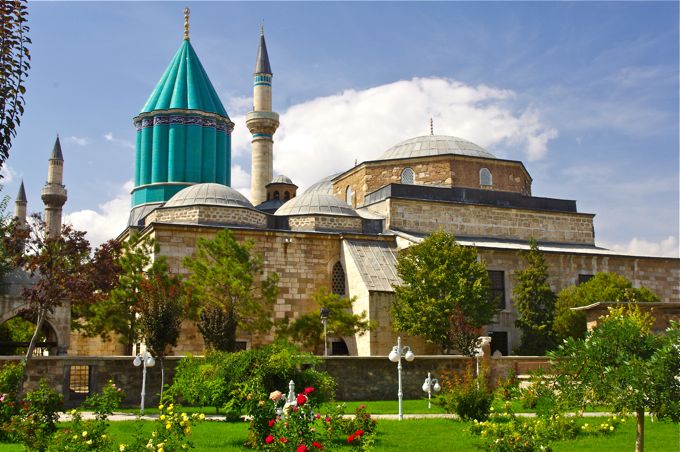 The Threshold Society, rooted within the traditions of Sufism and inspired by the life and work of Mevlâna Jalâluddîn Rumi, is a non-profit educational foundation with the purpose of facilitating the experience of Divine Unity, Love, and Truth in the world. Sufism is a living tradition of human transformation through love and higher consciousness. Our fundamental framework is classical Sufism and the Qur’an as it has been understood over the centuries by the great Sufis. The Society is affiliated with the Mevlevi Order, and offers training programs, seminars and retreats around the world.
The Threshold Society, rooted within the traditions of Sufism and inspired by the life and work of Mevlâna Jalâluddîn Rumi, is a non-profit educational foundation with the purpose of facilitating the experience of Divine Unity, Love, and Truth in the world. Sufism is a living tradition of human transformation through love and higher consciousness. Our fundamental framework is classical Sufism and the Qur’an as it has been understood over the centuries by the great Sufis. The Society is affiliated with the Mevlevi Order, and offers training programs, seminars and retreats around the world.
Each month we intend to highlight an article about our lineage and its principles. This month we offer: Love in Islam, by Mahmoud Mostafa.
A man once came to the Prophet (puh) and asked him about the hereafter. The Prophet asked him, “And what have you prepared for that time?” The man replied, “Nothing, except that I love Allah and I love you.” The Prophet (puh) answered him, “You are with the ones you love.”
Dear brothers and sisters, the guidance of Islam is the guidance of love. The innate, natural and ancient religion that is Islam is the religion of love. The Prophet (puh) came to guide us to love and to make clear the love that is at the core of all religion. Our purpose as human beings is to consciously manifest Allah’s love in our lives. This is the most significant meaning of Khilafa and Ibada that can bring purpose to us and transform our lives. When we reflect upon the history of the Prophet (puh) and the spread of his message we will realize that Islam could not have taken root in the world without the love that filled the heart of the Prophet and was clearly manifest in his way of relating and interacting with people that brought out their own deep and profound love for him. Without this mutual and abiding love, none of us would be here today. Without this love Islam would not have been possible.
***
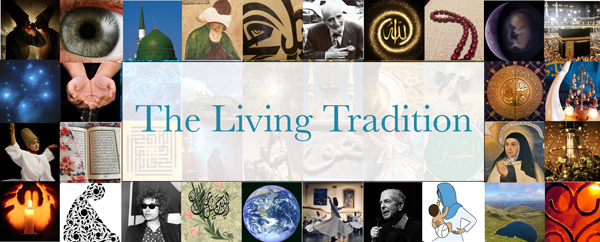
Threshold’s collaborative blog channel The Living Tradition on Patheos.com is reaching new audiences and sharing the experiences of our community in a unique and vibrant way.
Let us know what you think by commenting on the posts — join the discussion at www.patheos.com/blogs/livingtradition and “follow” The Living Tradition.
Recent articles:
Whirling through life: Reflections of a female whirling dervish by Daliah Merzaban
***
Recent Publications
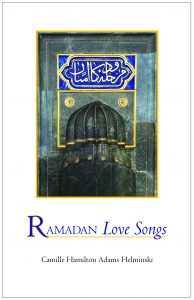
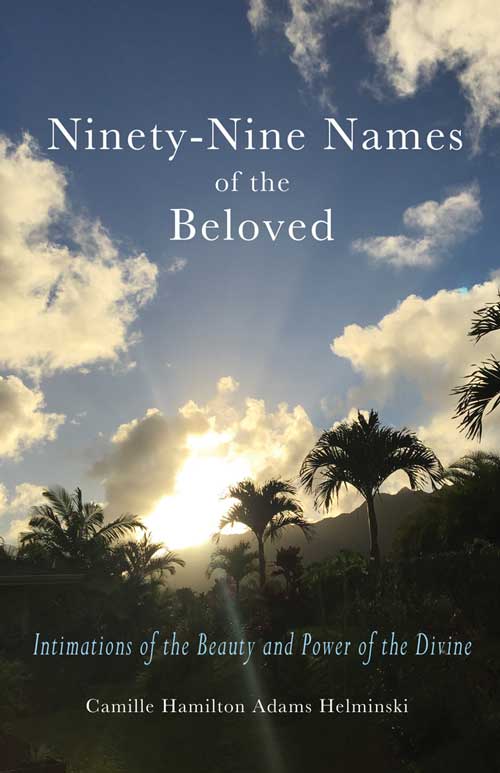
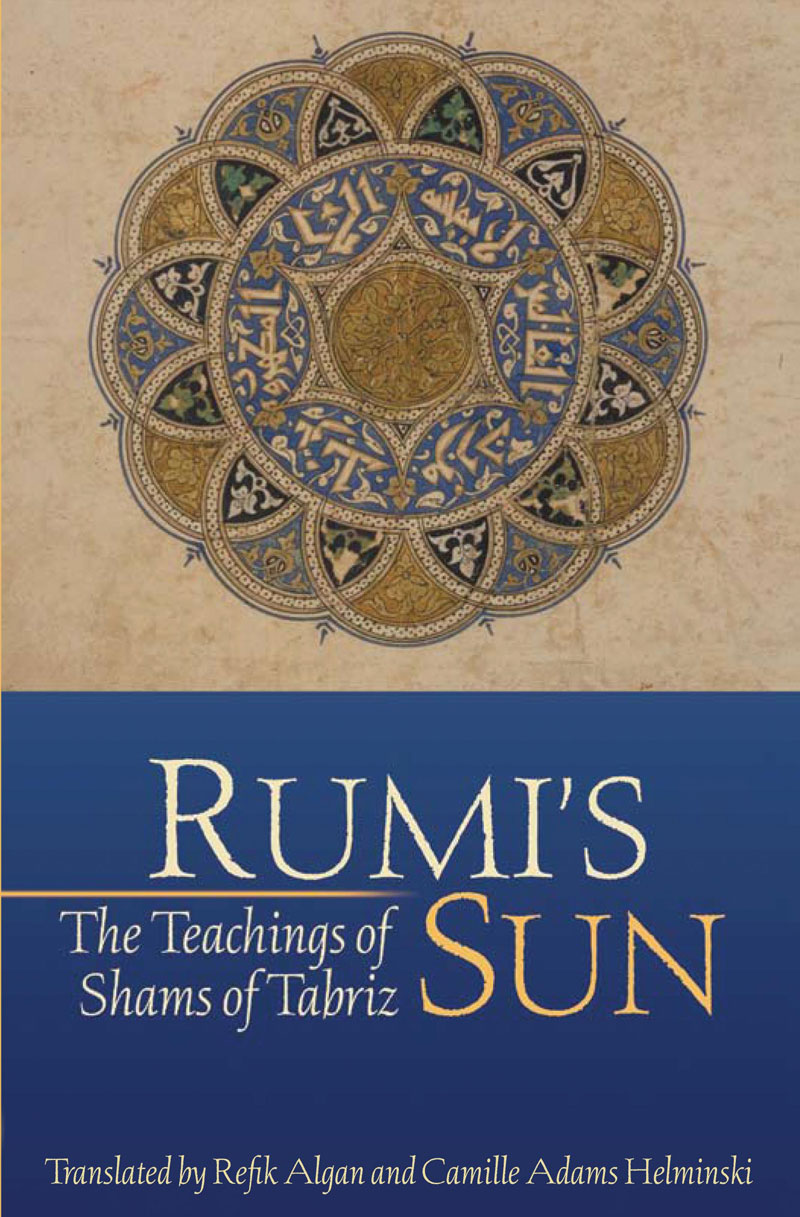
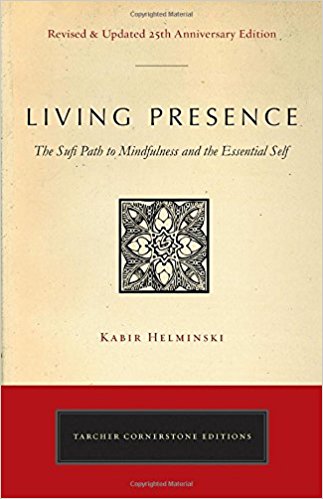
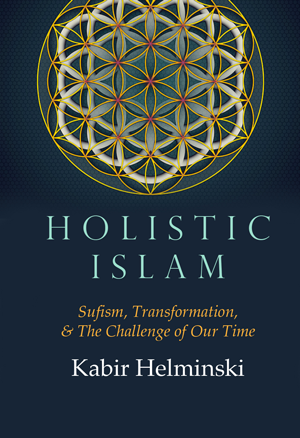
We encourage you to leave reviews on Amazon.
And remember you can donate to Threshold Society through Amazon Smile.
For AmazonSmile US: smile.amazon.com
For AmazonSmile UK: smile.amazon.co.uk
We appreciate your support.
***
Calendar
Mar 21: New York, Open Center. Journey of the Seeker in Sufism. More details. (K)
Apr 3-5: San Francisco, USA. Annual Retreat. More details. (KC)
Apr 23: Ramadan
May 24: Eid al-Fitr
Jul 10-13: Dorset, UK. Annual Retreat. (KC)
Jul 31: Eid al-Adha
Aug 22: Portland, Oregon. Day retreat with Kabir & Camille. (KC)
Events with Kabir (K) & Camille (C)
***
Costa Rica Retreat
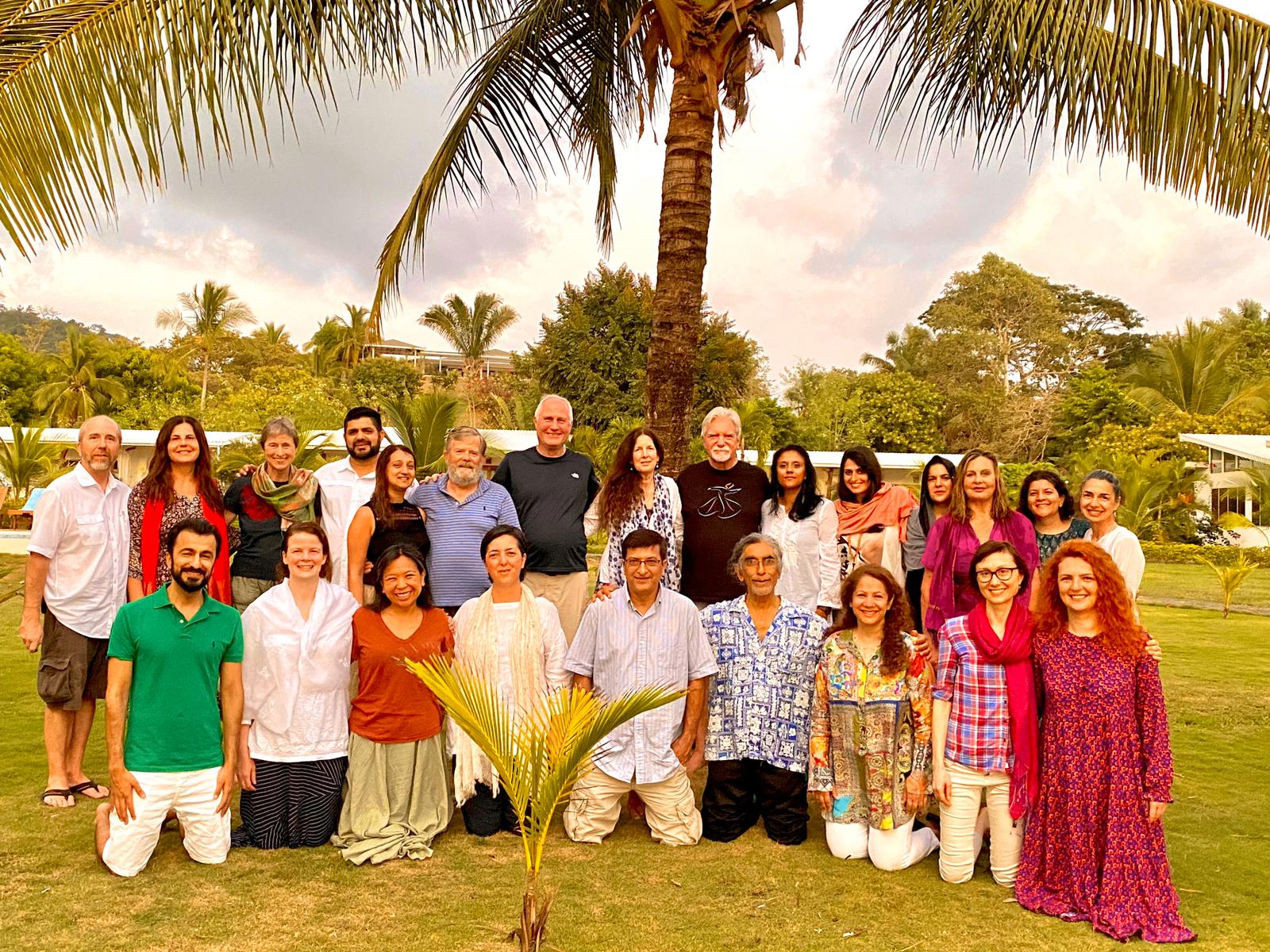
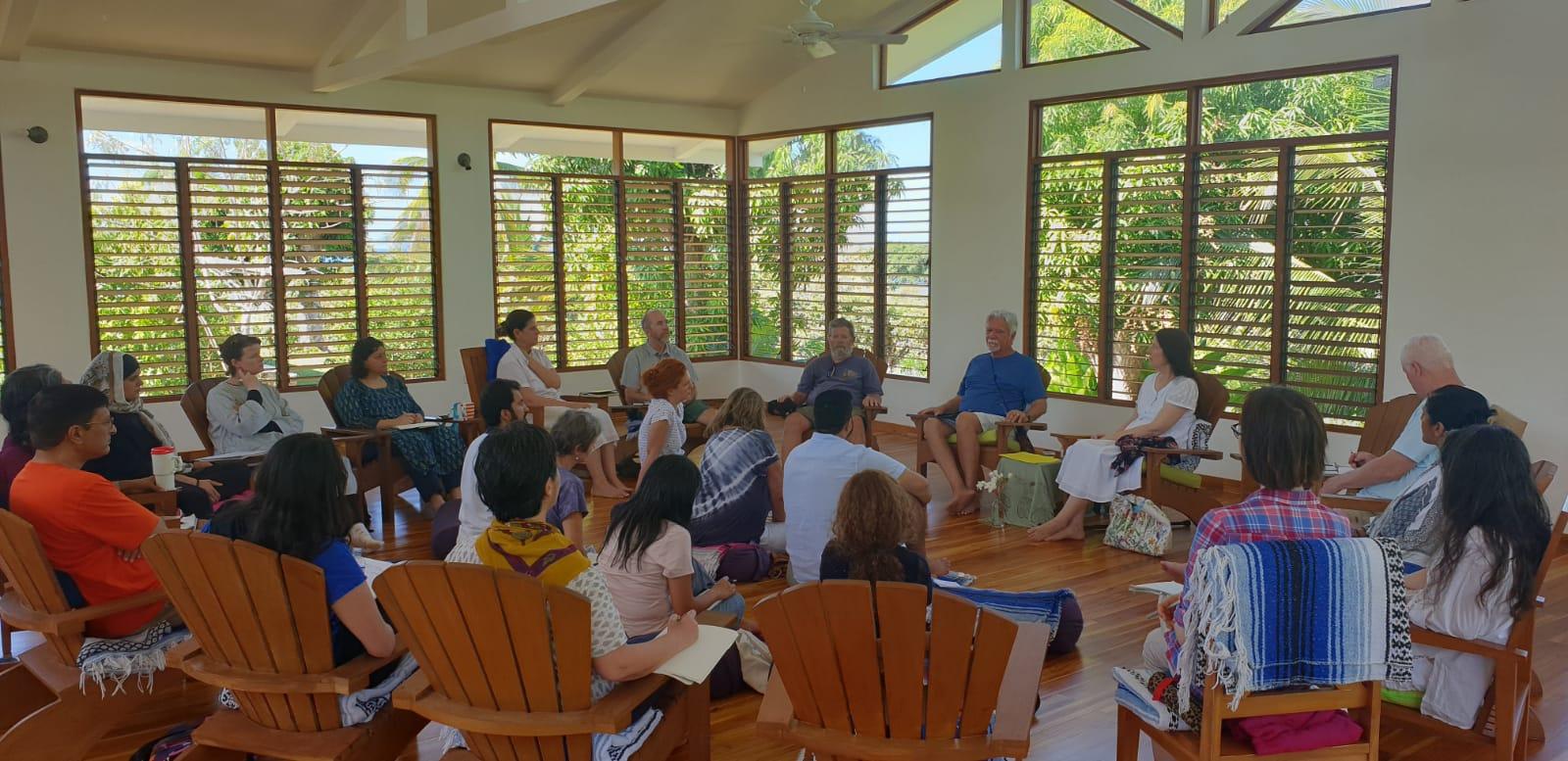
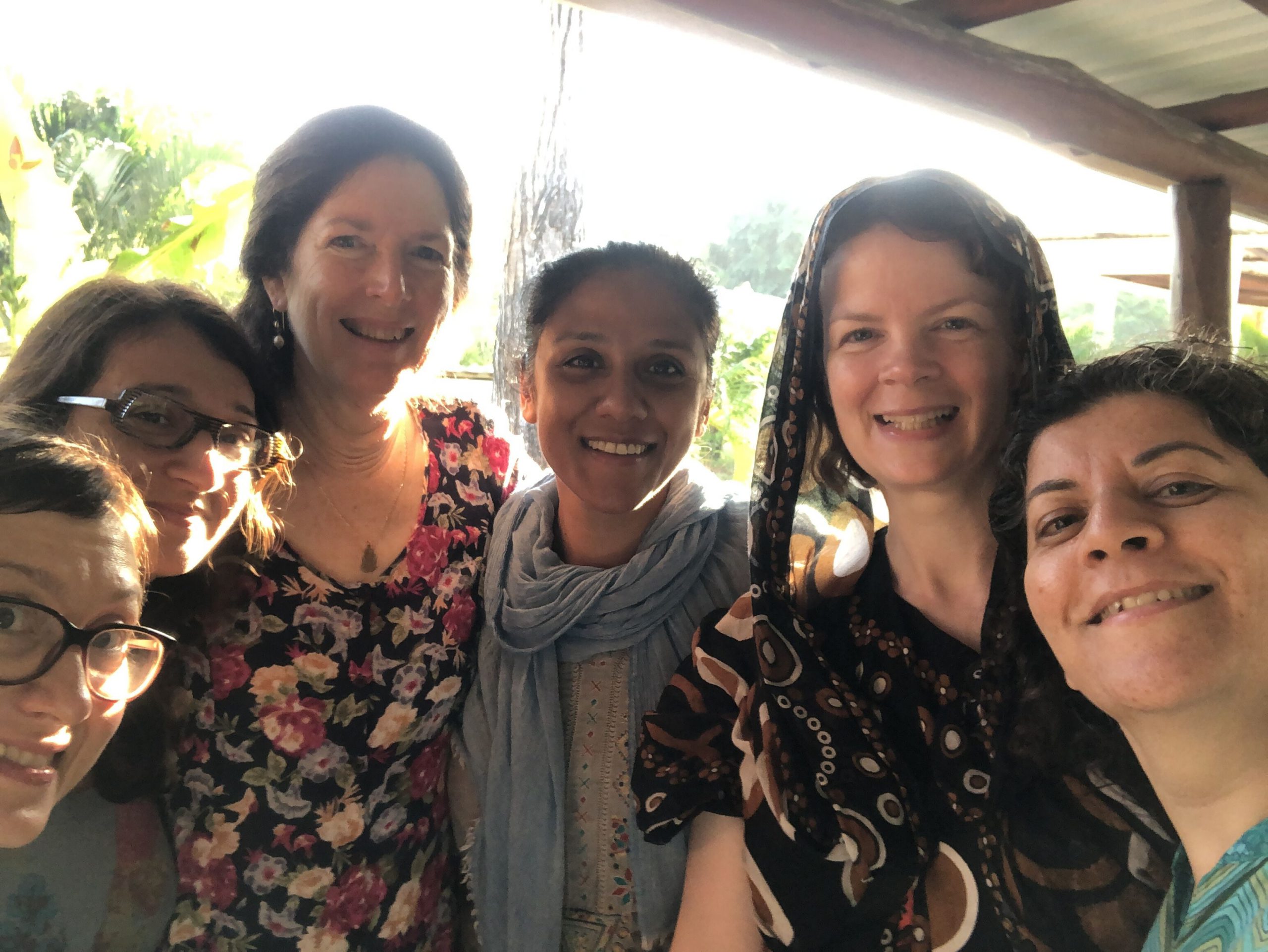
***
Rumi’s Circle Manchester
with Davod Azad
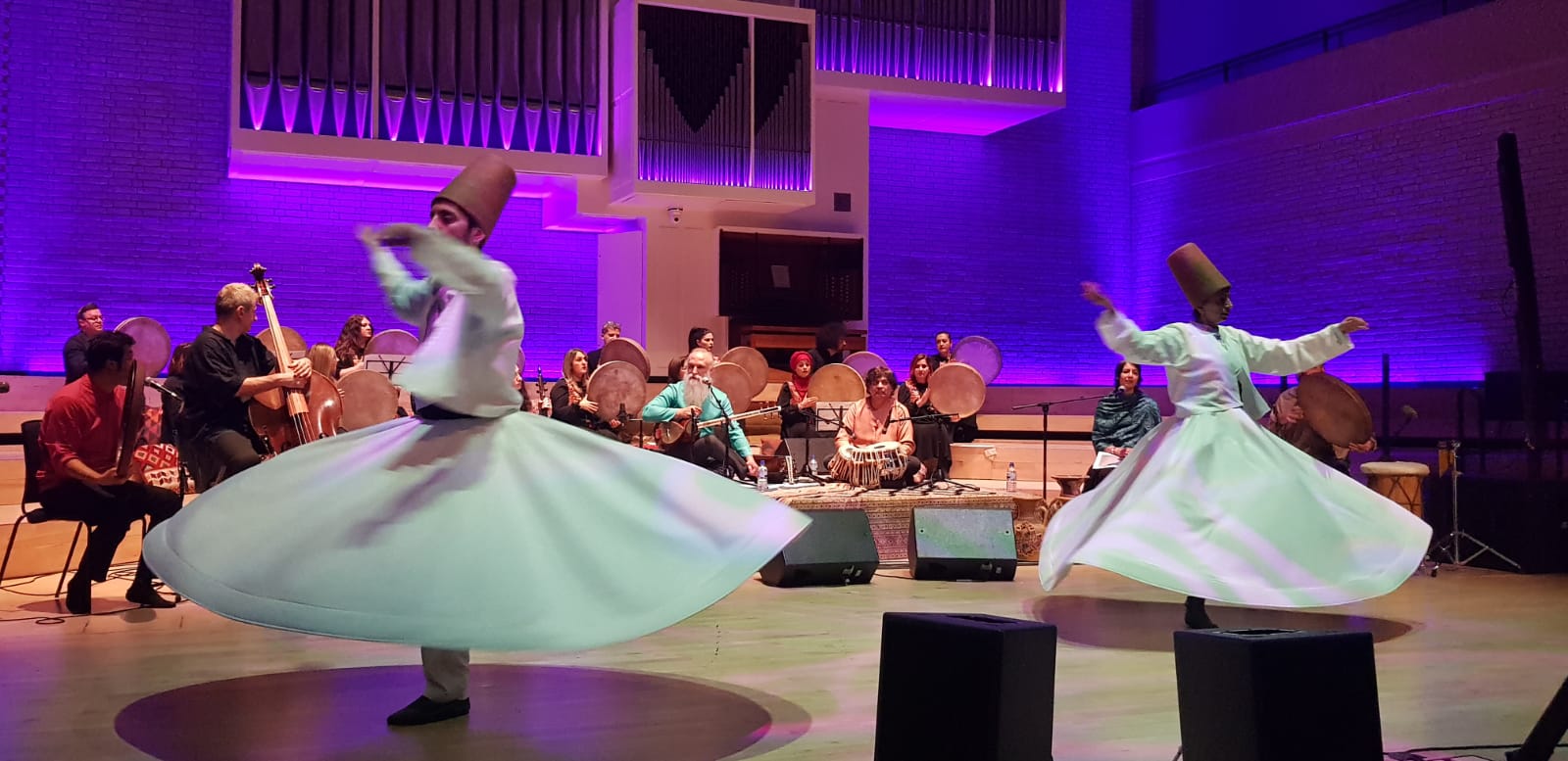
***
We’d love to hear from you – get in touch at eyeoftheheart@sufism.org
***
Find out how to support the work of Threshold Society.
***
Receive this newsletter by email: sign-up here.

